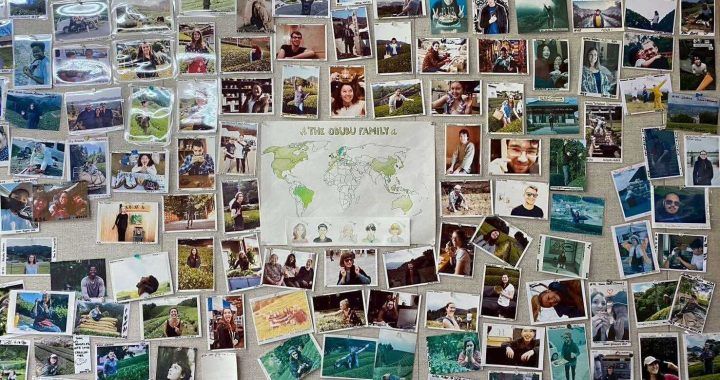Background
I was born in a tea-producing region and currently work at a Japanese tea store.
I believed that the internship program at Obubu Tea Farm could offer some clues to solve problems such as “labor shortages” and the “increase of abandoned tea fields” that have been great problems the tea industry, so I decided to join them as a volunteer for three days.
1st day
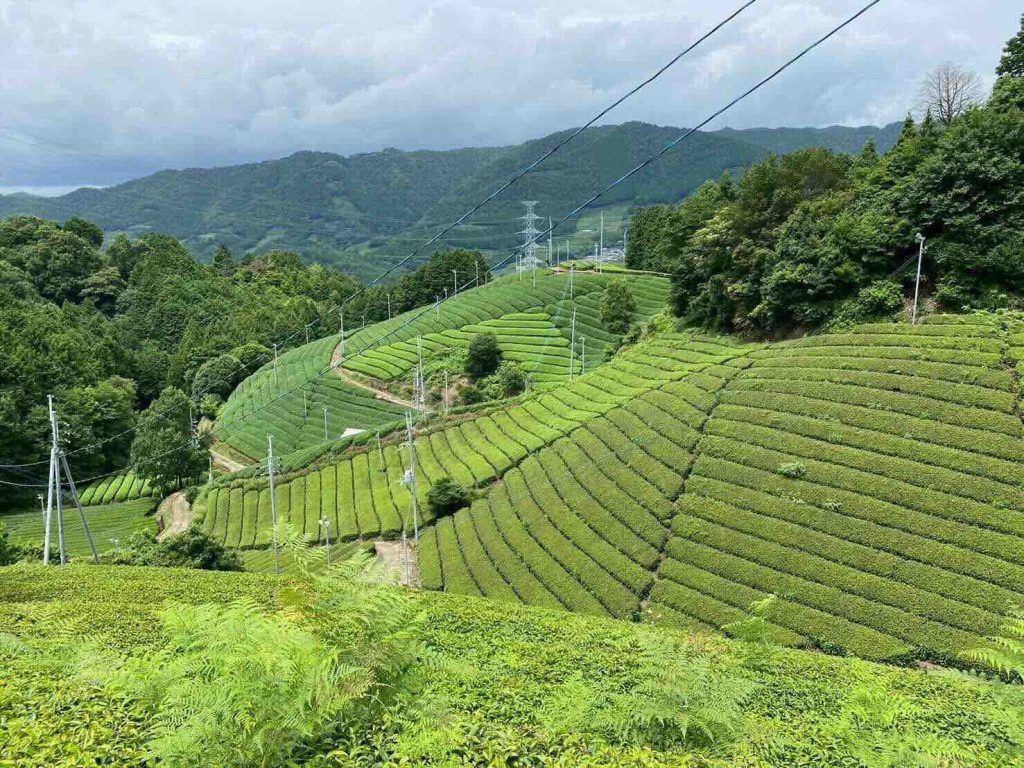
The day started with a tour of the shop and then I helped prepare for the upcoming “Tea Tour.” My tasks included setting tables, refilling and weighing tea leaves, and other preparations. During the tour itself, I assisted with serving tea. The presentation that day was given by an intern from Germany. The presentation was carried in PowerPoint format, and accompanied by tasting teas brewed by another staff. It was such a well-coordinated combination!
In the first place, I got surprised with the high quality of the presentation—it didn’t just explain the different types of tea, but began with Obubu’s philosophy toward tea, then moved into detailed explanations of cultivation and manufacturing methods, along with videos.
After that, we visited tea gardens. It was so surprising how steep the slopes are, but also the particular ground containing rocks, which I found very interesting. The cold-brew tea we drank in the hot fields was pure bliss by the way!
We then visited the tea-processing factory to observe the machines in operation while receiving explanations, which I found very easy for the overseas guests to understand. We had lunch together on the second floor of the factory. The healthy dishes were delicious, and the salted kelp flavored with genmaicha was so good!
Finally, we attended a tea-brewing lesson that included tastings of various teas. Guests had the opportunity to brew tea themselves and even try whisking matcha, which they seemed to enjoy a lot!
I was impressed that the entire tour—presentations, tea field and factory visits, and tasting sessions—was all carried out in English, making it easy for the guests to follow the process of tea production and ask questions confidently. I also found it ideal that the tours were basically held by interns, creating a very engaging and inspiring environment.
2nd day
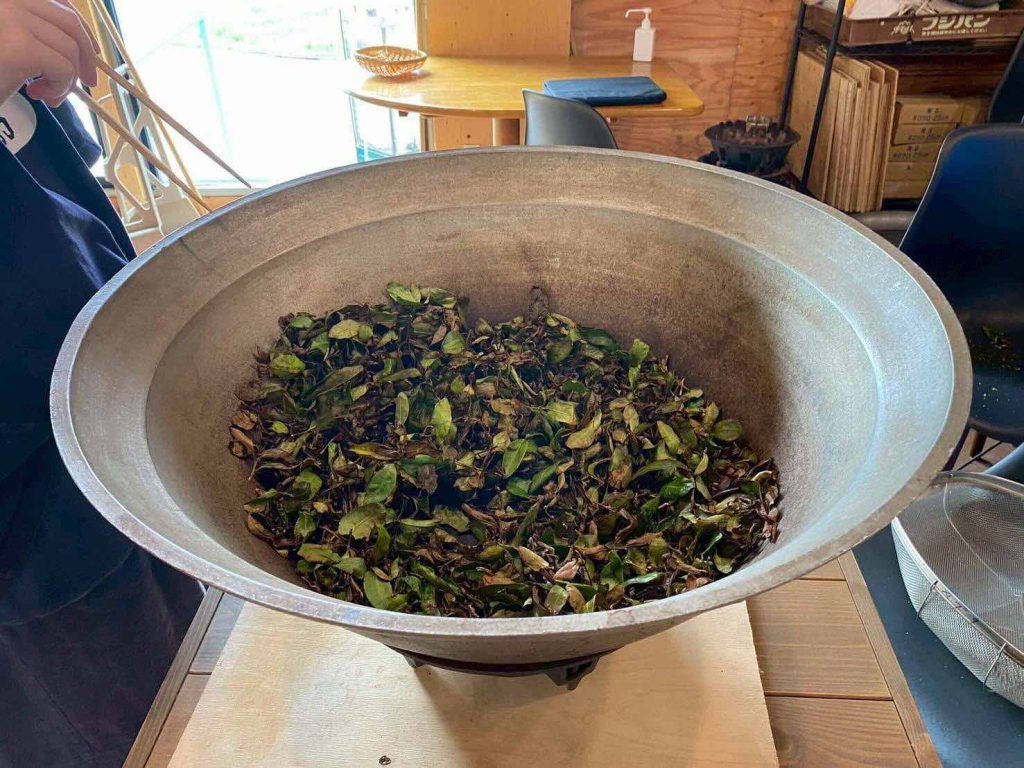
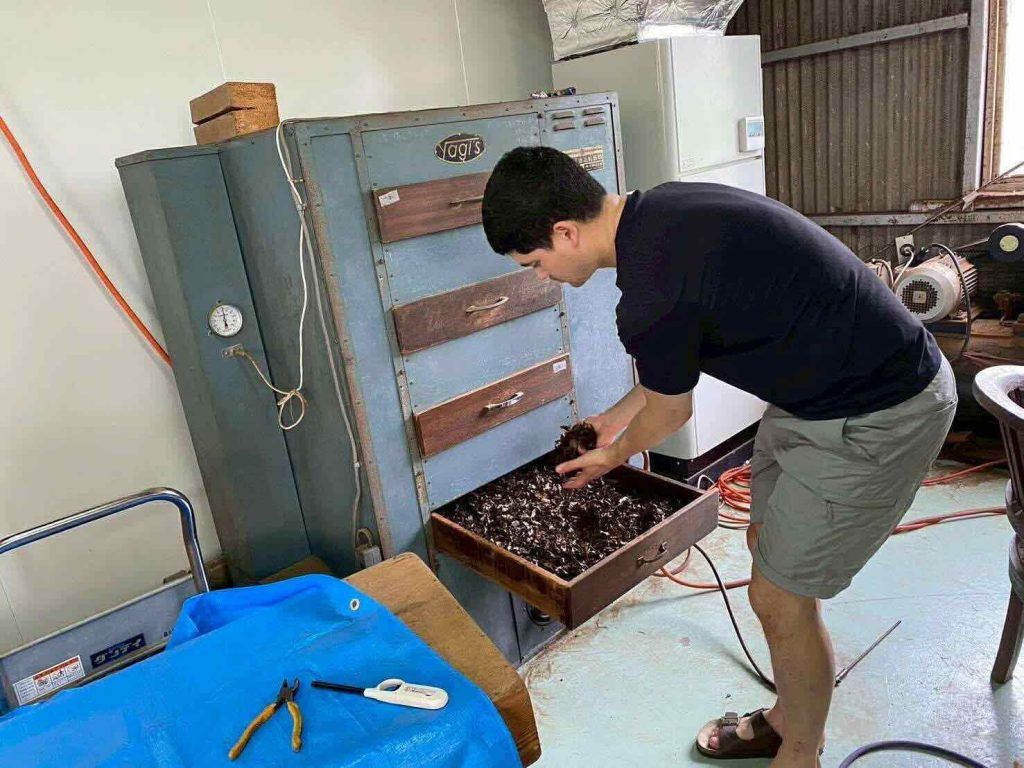
After I helped preparing for “Tea Tour” in the morning, I helped labeling packages, weighing and packing Matcha. I worked all along with other interns, and I could see how the employers trust them through how much independently they were approaching their tasks. While I had some free time, I could see the “Original Black Tea Production” of each intern. As it says, each intern is responsible for all the making processes. And there, I saw some interns were tasting, giving some comments, and advising each other. Given the difficulties about the equipment, and management, I know that it isn’t simple to provide them with such an environment where they can think and put their ideas into practice, but Obubu just does it.
3rd day
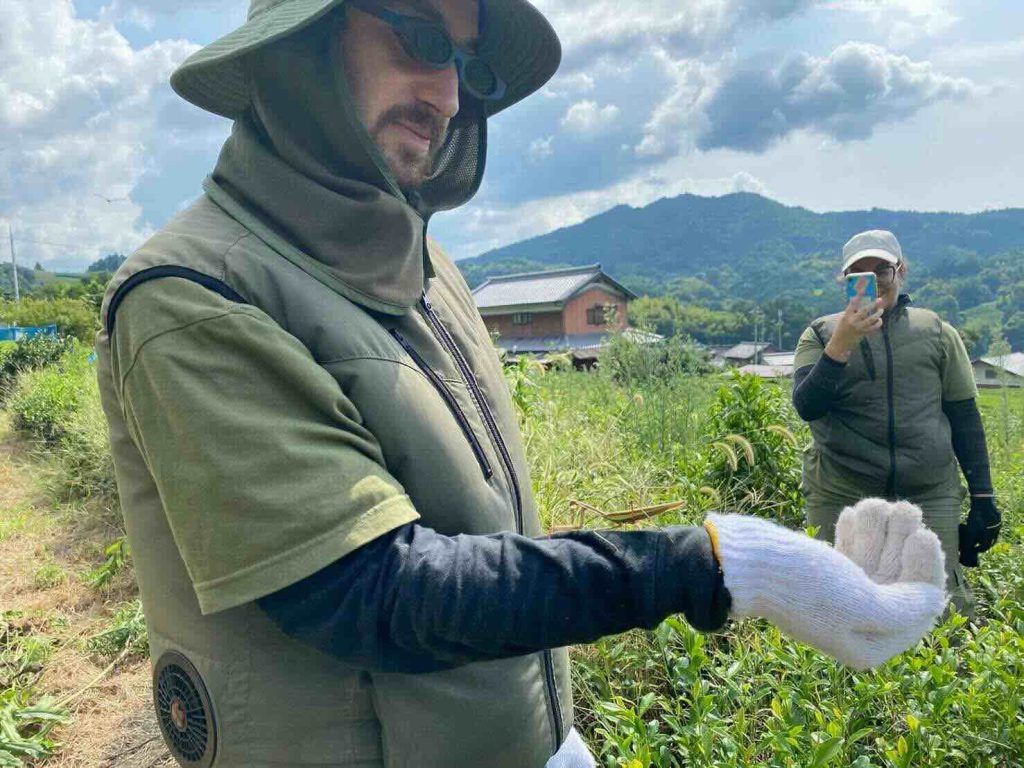
In the morning, I joined three other interns for some weeding in the tea fields. It was hot and humid outside, but we enjoyed a tea break along the way and even found a huge mantis, which made it a unique experience of farm work in tea gardens. After returning from the fields, I had the chance to make my own business card of Obubu Tea Farm. I got to fill the packet with my favorite tea leaves, creating an original tea bag given as a name card. I’m so excited to give it to new people! To wrap up the day, I finally got to ride the “Obubu Bus” back home, which was actually one of my dream!
Lastly
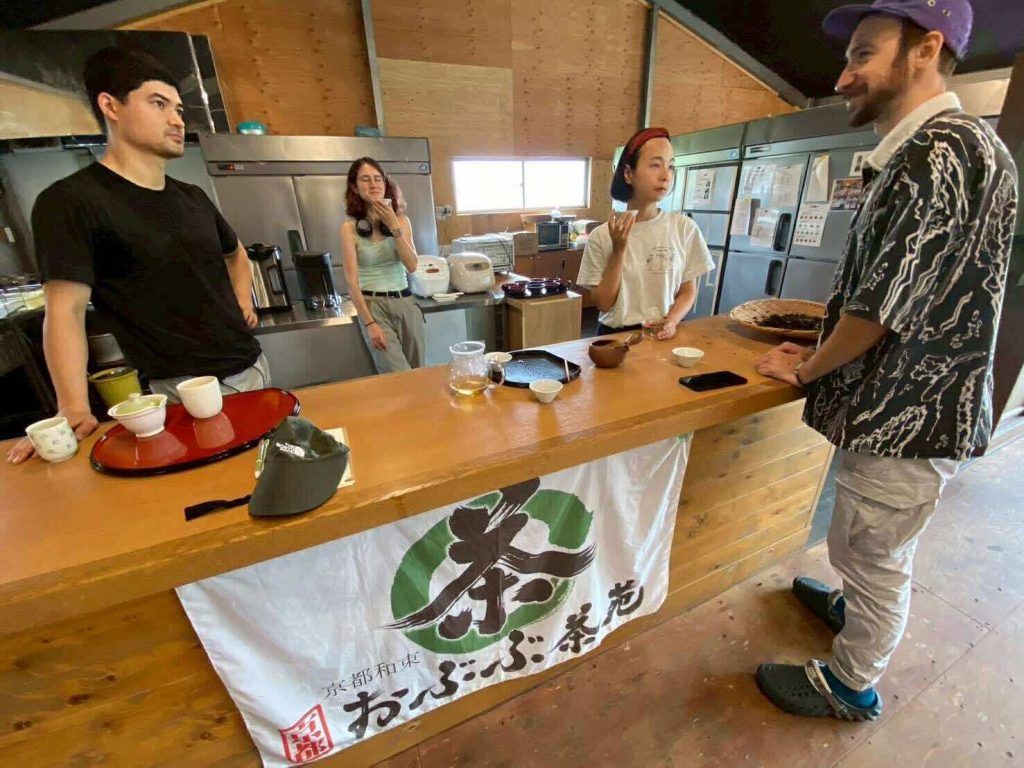
Through the volunteer activities at Obubu Tea Farm, I was so impressed by the depth of knowledge and experience of interns regarding not only about tea brewing, but also farming and producing. It was a really good experience for me to see how they are providing them with an environment where they can work on their own projects and tea processing. Through the experience of Obubu accepting many interns for years, I got to learn how we should create relationships with them and manage them for their projects. I also could spend free time on talking with interns about what brought them here and what they want to do in the future, which was actually another good memory for me.
I was impressed to see that the interns themselves could carry out the daily work while also maintaining a cycle of education, practice, and learning about tea. It made me feel that if more tea farms adopted such an approach, many of the challenges in the tea industry could be improved, and the future would look much brighter. In order to sell tea at a fair price, it is not enough to rely solely on branding; it is essential to also deliver the proper knowledge and background so that people can truly appreciate its value. It is one of my dreams to increase the number of people who has this knowledge and I really felt that this stay in Obubu got to be a crucial step for it!
Once again, I would like to express my sincere gratitude to Obubu Tea Farm and all the interns!

